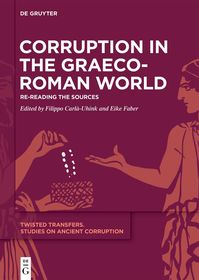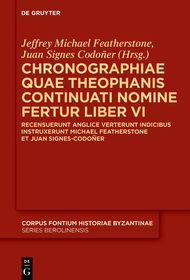
-
5% KEDVEZMÉNY?
- A kedvezmény csak az 'Értesítés a kedvenc témákról' hírlevelünk címzettjeinek rendeléseire érvényes.
- Kiadói listaár EUR 99.95
-
41 454 Ft (39 480 Ft + 5% áfa)
Az ár azért becsült, mert a rendelés pillanatában nem lehet pontosan tudni, hogy a beérkezéskor milyen lesz a forint árfolyama az adott termék eredeti devizájához képest. Ha a forint romlana, kissé többet, ha javulna, kissé kevesebbet kell majd fizetnie.
- Kedvezmény(ek) 5% (cc. 2 073 Ft off)
- Kedvezményes ár 39 381 Ft (37 506 Ft + 5% áfa)
Iratkozzon fel most és részesüljön kedvezőbb árainkból!
Feliratkozom
41 454 Ft

Beszerezhetőség
Megrendelésre a kiadó utánnyomja a könyvet. Rendelhető, de a szokásosnál kicsit lassabban érkezik meg.
Why don't you give exact delivery time?
A beszerzés időigényét az eddigi tapasztalatokra alapozva adjuk meg. Azért becsült, mert a terméket külföldről hozzuk be, így a kiadó kiszolgálásának pillanatnyi gyorsaságától is függ. A megadottnál gyorsabb és lassabb szállítás is elképzelhető, de mindent megteszünk, hogy Ön a lehető leghamarabb jusson hozzá a termékhez.
A termék adatai:
- Kiadás sorszáma 1
- Kiadó De Gruyter
- Megjelenés dátuma 2024. december 16.
- ISBN 9783111338606
- Kötéstípus Keménykötés
- Terjedelem362 oldal
- Méret 240x170 mm
- Súly 741 g
- Nyelv angol
- Illusztrációk 2 Illustrations, color 721
Kategóriák
Hosszú leírás:
Defining corruption is an incredibly difficult task. Being at the same time a concept identifying illegitimate and illegal behaviors, mostly connected to positions of power, and a word indicating a process of (moral) degeneration, corruption is hard to tackle and disentangle – especially when one considers how it is perceived and discussed in public discourse. As deviance from the norm, corruption shifts continuously: different cultures recognize different kinds of behavior as "corrupt". Nonetheless, earlier studies on corruption in Greek and Roman antiquity have often tried to define which periods were "more" or "less corrupt", or how corruption influenced the demise of political orders (for example in the late Roman republic or in late antiquity). This volume develops a different approach, focusing on the ways in which ancient sources – literary texts, papyri, laws, etc. – have understood and defined corruption, to gain an emic perspective of corruption in different moments and contexts of Graeco-Roman Antiquity. The volume thus provides an innovative and comprehensive perspective on corruption and anti-corruption in Greek and Roman antiquity, thus providing relevant tools also for today’s discussions about a topic which is and was always current.
Több






